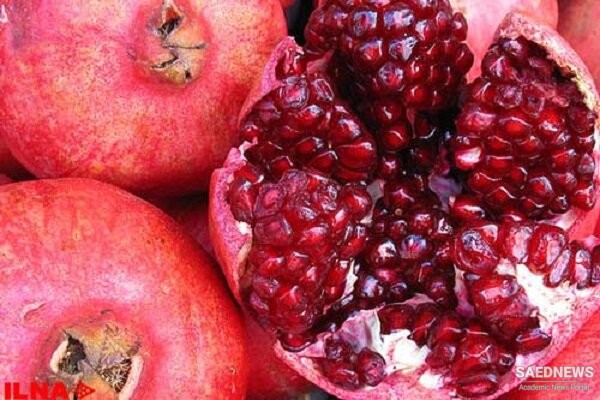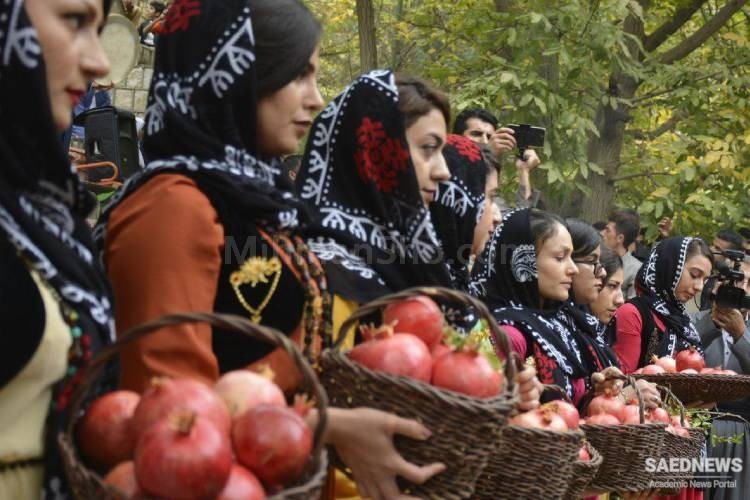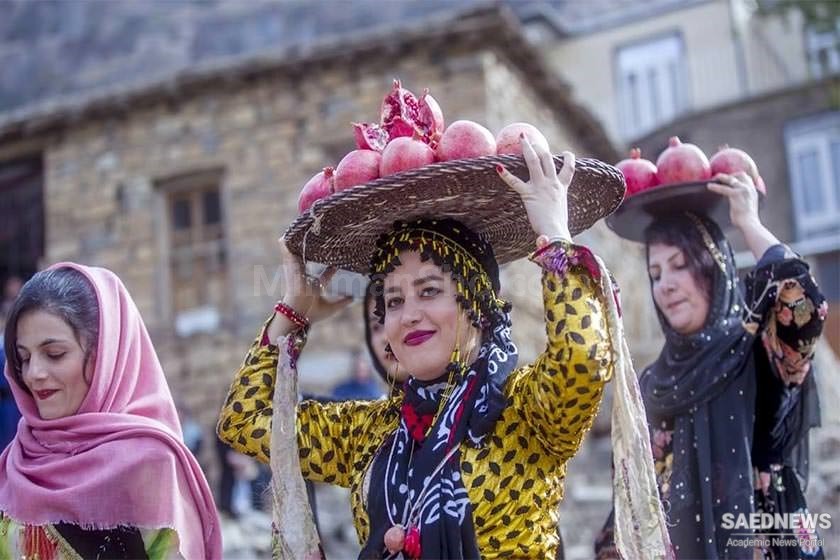The Feast of pomegranate takes place in mid-autumn, with many tourists from all over Iran celebrating the harvest. Feast of Pomegranate is celebrated simultaneously with harvesting in Anbooh, the beautiful, historical, and faraway village, which ages about three thousand and five hundred years, and also in Nowdeh, a mountainous and almost pristine and traditional village during mid-autumn days. Although there grows pomegranate in other provinces in Iran, especially the famous pomegranate of Saveh (situated in Markazi province), this feast is held in Anbooh village every year.

Anbooh, this historic village that has climate variation in different seasons of the year, is one of the villages included in the Tourism Development Plan. It has many touristic attractions like staircase houses built by native materials in the area (hence it is called the second Masuleh), located in a geographical impasse (so it is not easily accessible), anthropology, historical attractions, agricultural and animal products, handicrafts and special rituals. Sweet, large, and juicy pomegranate of this village is well known and widely grown in this area. Feast of Pomegranate is one of the most important and oldest local celebrations of the village which, along with the natural beauty of the area, represents the rituals and practices of harvesting and growing pomegranate. This is done during a special ceremony in the morning of last Friday of Mehr (the seventh month of the solar year and the first month of autumn) with the call of "Ya Allah (God)" by Pakar Karpi (a person introduced by the gardeners to guard the pomegranate gardens for one year).

After gathering all the locals and prayers, the ceremony began with traditional music (playing the Dayereh, Sorna, and Dohol), local games and competitions, and baking local bread and confectionery; then people enter the gardens and begin to pick pomegranates. The people of this area believe that pomegranates are a fruit of paradise and a symbol of beauty, while respecting the traditions and efforts to preserve it, believe that before this day and before picking this blessed fruit (from mid-Shahrivar to late Mehr), no one has the right to enter pomegranate gardens and harvest their pomegranate. If someone picks the pomegranates before this day, he will be outraged and punished by the custom of the people of the region. On this day, during the celebration, all the villagers, even those who have emigrated from the village, come to the area to help, pick pomegranates, and celebrate with others. Women and girls of the village wear beautiful and colorful local costumes and accompany men to pick pomegranates from the trees till dusk. Along with harvesting the fruit of their garden, gardeners also represent irrigation steps, making pomegranate paste and other fruit products. People and visitors who came to the area to watch the pomegranate feast buy some of the collected pomegranates and most of the products sold for sale in the city.


 Yalda Celebrating the Longest Night of the Year with the Loved Ones
Yalda Celebrating the Longest Night of the Year with the Loved Ones














































